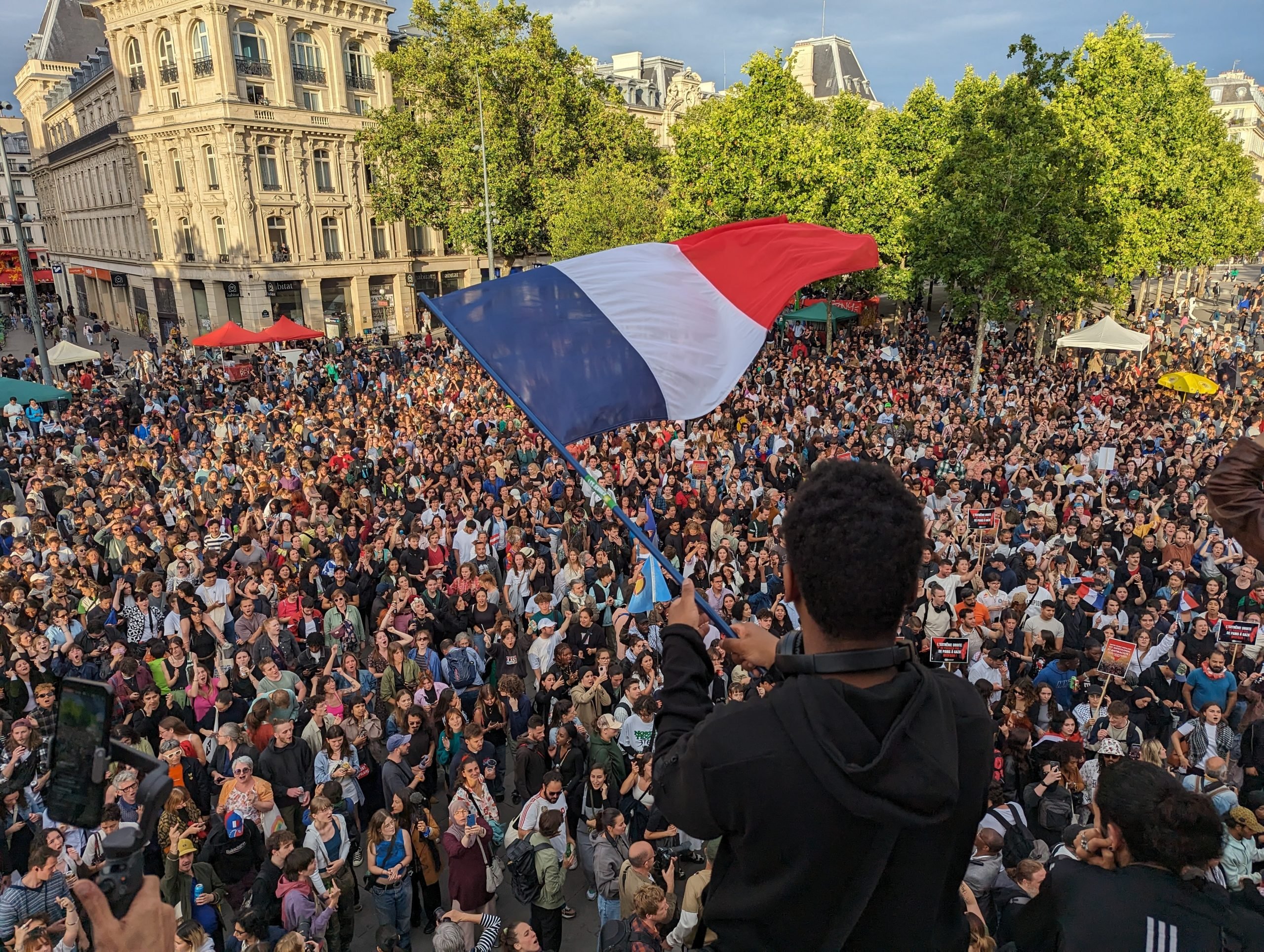
The second round of France’s election produced a shock result on Sunday, July 7, revealing an electorate that is more politically divided now than at any other time in recent history. What might this mean for the arts?
The three-way battle between the left-wing New Popular Front (NFP) alliance, Marine Le Pen’s far-right National Rally (RN), and incumbent president Macron’s centrist alliance Ensemble defied pollsters’ predictions in favor of the RN after it got the highest share of the vote (33%) in the first round. In the end, the left-wing alliance came out on top, winning 182 seats in France’s National Assembly over Macron’s 168 and the RN’s 143.
While the outcome is a relief for many, it has flung the French government into a state of confusion with no one faction establishing the clear majority of 289 required to take power. The situation will almost certainly result in a hung parliament composed of a center-left coalition that will include some of the left-wing parties that jointly form the NFP, all of which have their own policies and approaches. They include the Socialist Party, the Greens, and the far-left French Unbowed (LFI), which Macron is unlikely to be willing to collaborate with.
Culture was not a major talking point for parties across the political spectrum in the build up to the election, but the NFP suggested that spending on culture should be raised to 1 percent of the national budget, rising from €4.2 billion to €25 billion. Yet it did not offer a concrete plan for how this significant increase could be funded.
Left-wingers have, however, suggested a few initiatives that would benefit from this increase in public funding. Speaking to the French edition of The Art Newspaper, the NFP alliance’s Sarah Legrain, a member of the far-left LFI, said one priority for the NFP is the improvement of access to the arts for the working classes. To this end, alliance has said it hopes to introduce free admission to all of France’s national museums and control ticket pricing at other public or private institutions. (Meanwhile, in the U.K., which also just held elections, the reverse measure has been proposed).
French leftist party La France Insoumise (LFI) member of Parliament Sarah Legrain. Photo: Thomas Samson / AFP via Getty Images.
Legrain added that she hopes to reform France’s €300 ($325) culture pass for 18 year olds, launched in 2021 to encourage participation of young people in cultural activities. “I understand that [in the face of] inflation, people use [the pass] to go to the cinema or buy a book that they had already planned to buy,” she said, of the pass’s current limitations. “However behind [the scheme] there are public funds, and [this narrow use] is to the detriment of areas that are less obvious to these young people, such as contemporary art.”
Another cultural talking point in France has a been the planned five-year renovation of the Centre Pompidou. This would be supported by the NFP, as would plans to loan out the museum’s collections so that they can be enjoyed by new audiences. The alliance also supports the museum’s workers who fear its closure could result in job losses. Earlier this year, France’s culture minister Rachida Dati curried favor with the public when she played a decisive role in ending a stand-off between the museum and two labor unions, encouraging an agreement that some 1,000 jobs would be guaranteed.
For the time being, France’s cultural sector is not benefitting from the uncertainty caused by the election. In a report in Le Monde, some leaders in the field have expressed concern about the future of private patronage in France as public funding is slashed. Meanwhile, until a coalition has been formed, some important public initiatives like France’s new law to expedite the restitution of colonial objects have been suspended.